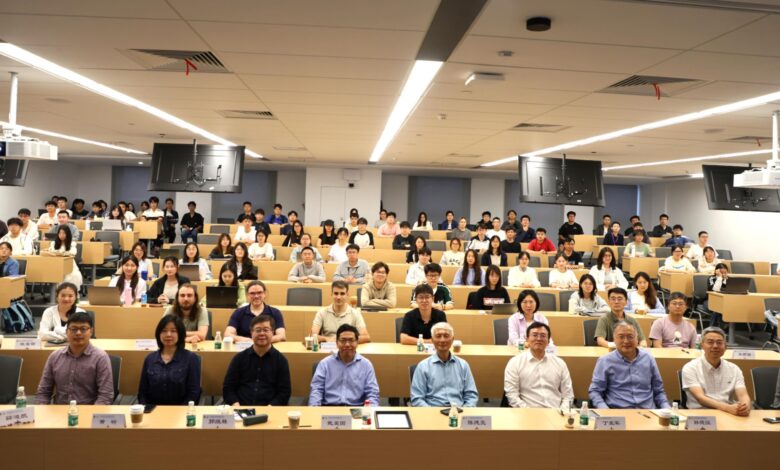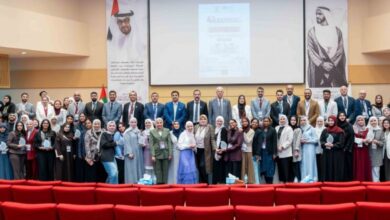Nanjing-Helsinki Institute Lecture Series Launches at Nanjing University

The Nanjing-Helsinki Institute Lecture Series began on May 23 at the Nanjing-Helsinki Institute in Atmospheric and Earth System Sciences, affiliated with Nanjing University. The inaugural session was held at the Suzhou campus, with a simultaneous venue established at the Xianlin campus. Keynote addresses were presented by Chen Deliang, a foreign academician of the Chinese Academy of Sciences (CAS), and American climate scientist Dai Aiguo. The event was moderated by Ding Aijun, Assistant President of Nanjing University and Dean of the Nanjing-Helsinki Institute, while Fu Congbin, another CAS academician, participated via online platform.
Academic Insights on Earth System Sciences
During the lecture, Academician Chen Deliang addressed the evolution of Earth System Sciences in conjunction with artificial intelligence (AI) modeling. He traced the discipline’s development through significant international initiatives such as the World Climate Research Programme (WCRP), the International Geosphere-Biosphere Programme (IGBP), the International Human Dimensions Programme (IHDP), and DIVERSITAS, culminating in the initiative “Future Earth.” Chen emphasized a transition from traditional natural system research to more holistic “human-earth system” studies, pointing out the importance of understanding the interactions between non-material factors, including institutions, culture, and cognition, and climate systems. He suggested that cultural influences may significantly shape next-generation Earth system models and acknowledged the potential of AI to enhance simulation capabilities, while also stressing the importance of comprehending the fundamental mechanisms involved.
Global Precipitation Changes and Climate Warming
Professor Dai Aiguo examined the characteristics of global precipitation changes linked to climate warming, highlighting three primary trends: intensified polarization, regional differentiation, and inconsistencies between land and sea. He noted an increase in the frequency of heavy precipitation events and a decline in moderate and light rain occurrences. Furthermore, he explained that the rise in global temperatures results in increased water vapor, which contributes to more frequent heavy precipitation events, while the reduced occurrence of lighter rains is influenced by uneven atmospheric processes associated with warming trends.
Interactive Engagement and Academic Outreach
The lecture was broadcast live to the Nanjing campus, offering faculty and students an opportunity to engage in interactive discussions focused on global climate change and Earth system sciences. This dual-venue setting aimed to enhance academic outreach and exemplify the Nanjing-Helsinki Institute’s dedication to resource sharing and fostering connections across campuses.
(Original source: Nanjing University)




